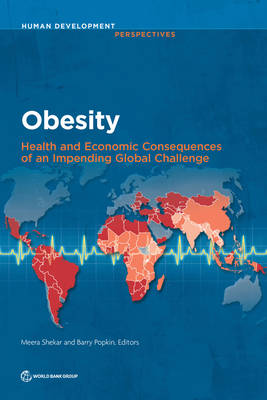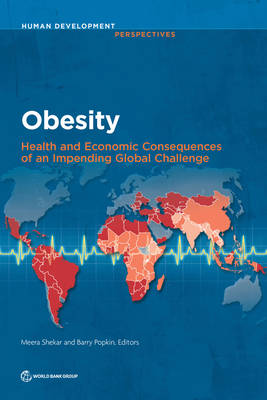
- Afhalen na 1 uur in een winkel met voorraad
- Gratis thuislevering in België vanaf € 30
- Ruim aanbod met 7 miljoen producten
- Afhalen na 1 uur in een winkel met voorraad
- Gratis thuislevering in België vanaf € 30
- Ruim aanbod met 7 miljoen producten
Zoeken
Obesity
Health and Economic Consequences of an Impending Global Challenge
€ 64,45
+ 128 punten
Omschrijving
Obesity is a global ticking time bomb with huge potential negative economic and health impacts, especially for the poor. As of 2016, an estimated 44 percent of adults (more than two billion) worldwide are overweight or obese, and over 70 percent of them live in low- or middle-income countries, dispelling the myth that obesity is a problem only in high-income countries. The global obesity epidemic presents a formidable challenge to human capital acquisition, national wealth accumulation, and the goals of ending extreme poverty and boosting shared prosperity. Given the renewed global focus on human capital, its links to the obesity epidemic, and the growing evidence base for double- and triple-duty actions, there is both an urgent need for action and a great opportunity for engagement that will require both a whole-of-government and a whole-ofdevelopment-partner approach. Countries and global partners need to act urgently to address this ensuing epidemic, with emphasis on interventions that require corrective public action rather than one of individual responsibility.
Specificaties
Betrokkenen
- Uitgeverij:
Inhoud
- Aantal bladzijden:
- 230
- Taal:
- Engels
- Reeks:
Eigenschappen
- Productcode (EAN):
- 9781464814914
- Verschijningsdatum:
- 13/02/2020
- Uitvoering:
- Paperback
- Formaat:
- Trade paperback (VS)
- Afmetingen:
- 152 mm x 226 mm
- Gewicht:
- 362 g

Alleen bij Standaard Boekhandel
+ 128 punten op je klantenkaart van Standaard Boekhandel
Beoordelingen
We publiceren alleen reviews die voldoen aan de voorwaarden voor reviews. Bekijk onze voorwaarden voor reviews.







